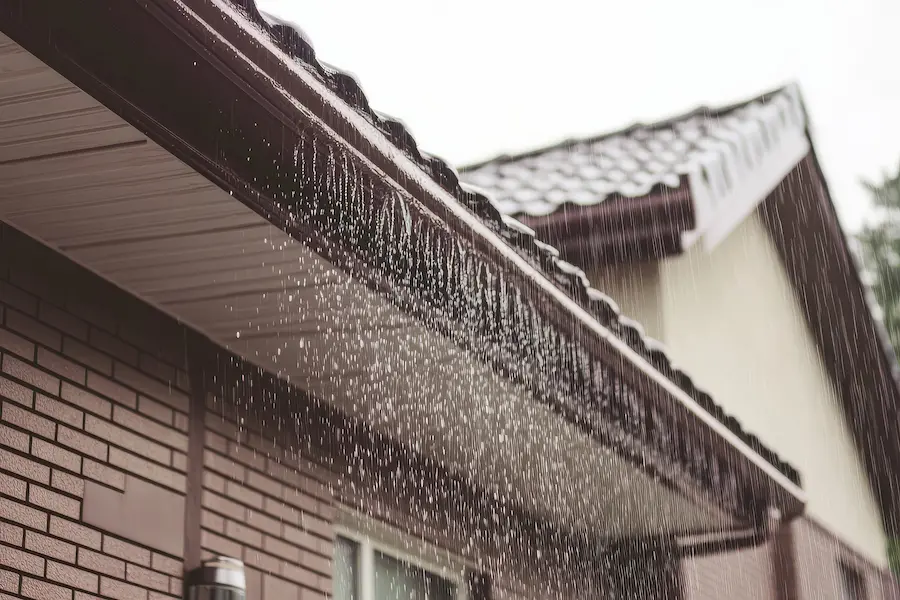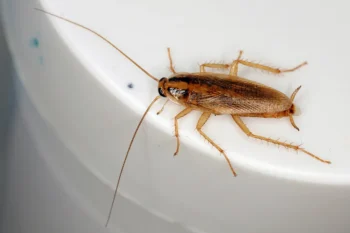
From June through November, hurricane season can cause significant damage to homes throughout the U.S. While structural damage often takes center stage, hurricanes also foster environments where pests flourish. Addressing these hidden risks is a key element of hurricane safety.
Mosquitoes breed rapidly in stagnant water left by flooding, and rodents often become more active as they exploit damaged structures. Without timely management, these pests can escalate into serious infestations.
Effective pest control is vital in any post-hurricane recovery plan. Acting quickly helps protect your home and the health of your community. For helpful advice, be sure to review our post-hurricane safety recommendations.
What to Do After a Hurricane
Hurricanes leave behind pools of water and damage that encourage pests like mosquitoes and rodents to invade. Mosquitoes can spread illnesses, and rodents might cause costly structural damage. Additionally, flooded areas often host fire ants that cluster in floating rafts and sting when threatened.
For your safety, be sure to review these essential post-hurricane tips:
Tips to Reduce Mosquitoes After a Hurricane
- Improve Drainage: Make sure water drains properly through gutters, flower pots, ditches, and storm drains to stop mosquitoes from breeding.
- Remove Water: Clear all standing water around your property, including buckets, tarps, tires, and lawn equipment where water can collect.
- Use Repellent: Protect your skin by applying EPA-approved insect repellents with DEET, picaridin, or oil of lemon eucalyptus.
- Dress Safely: When cleaning up, wear long sleeves, pants, closed-toe shoes, and light-colored clothing to lower your risk of mosquito bites.
- Avoid Peak Times: Try to limit outdoor activities during dawn and dusk when mosquitoes are most active and bites are more likely.
Managing Pest Risks After a Storm
- Clear Debris: Remove leaves, branches, and fallen trees from your yard since they can serve as shelter and breeding sites for pests.
- Unclog Gutters: Regularly clean gutters and storm drains to prevent water buildup that can attract pests.
- Dry Out: Remove soaked carpets, rugs, and furniture inside your home to reduce excess moisture and prevent mold and pest issues.
- Seal Damage: Quickly fix any structural damage and close holes or gaps to keep pests from entering your home.
- Manage Waste: Keep trash bins clean and store them away from your house to minimize the attraction of pests.
How to Keep Food Safe Following a Hurricane
- Flooded Produce: Avoid eating any fruits, vegetables, or unpackaged foods that have come into contact with floodwaters.
- Contaminated Gardens: Do not consume produce grown in gardens that were exposed to floodwaters.
- Damaged Cans: Discard canned foods with bulging, dented seams, or visible swelling.
- Unsafe Cans: Avoid using cans with snap tops, pull tops, or any home-canned goods, as they might be unsafe.
- Spoiled Refrigeration: Throw away all perishable foods if your refrigerator lost power during the storm.
- Thawed Frozen Items: Do not eat frozen foods that thawed above 41°F or were thawed for more than four hours.
- Boxed Goods: Discard packaged dry goods like cereal, flour, pasta, and similar items if they were exposed to flood conditions, even if they look dry.
- Discard Porous Items: Get rid of items that cannot be fully disinfected, such as wooden cutting boards, baby bottle nipples, paper napkins, and paper towels.
- Sanitize Surfaces: Clean and disinfect all dishes, utensils, and food-contact surfaces thoroughly before use.
Can Hurricanes Trigger Outbreaks of Mosquito-Borne Illnesses?
Mosquito breeding surges following hurricane damage. Flooding leaves behind pools of standing water, which serve as perfect breeding sites. Although many mosquitoes die during the storm, the remaining floodwaters trigger dormant eggs to hatch, resulting in a rapid increase in mosquito populations. These new mosquitoes typically emerge seven to ten days after the hurricane.
Once hatched, female mosquitoes begin seeking blood meals necessary for reproduction. Without prompt mosquito control during hurricane recovery, their numbers can multiply quickly. This sudden growth in mosquito populations raises the risk of diseases such as West Nile and Zika in affected communities.
Addressing mosquito control early is critical in the wake of hurricane damage. Failure to do so can lead to widespread infestations that hamper recovery efforts and threaten public health. Quick and effective measures protect both residents and responders during this vulnerable time.
Protecting Communities by Controlling Mosquito Populations
Regardless of season or hurricanes, mosquito-borne illnesses remain a constant risk in Lubbock TX. During hurricane recovery, maintaining diligent mosquito control and monitoring is essential to reduce these health threats. Working alongside specialists like Bug Out enables the city to apply effective strategies against diseases, including West Nile, Zika, and dengue. Safeguarding the community requires persistent and coordinated effort.
If a hurricane affects your community, you can count on us to provide support. Reach out to Bug Out for expert advice and assistance. We’re here to serve you every step of the way.





